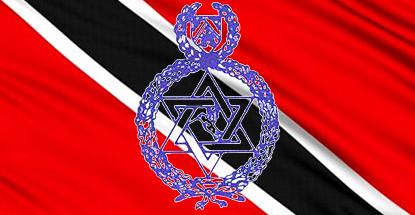 Trinidad & Tobago’s proposed new gambling legislation is getting the gears from opposition politicians over the harshness of some of its penalties.
Trinidad & Tobago’s proposed new gambling legislation is getting the gears from opposition politicians over the harshness of some of its penalties.
The new Gambling (Gaming and Betting) Control Bill, 2015 seeks to overhaul the nation’s existing Gambling and Betting Act. The new bill addresses everything from casinos to pari-mutuel betting and calls for the establishment of a proper Gambling (Gaming and Betting) Control Commission to regulate the industry.
The current session of the Trinidadian parliament adjourns next week but the bill was only introduced into the House of Representatives on May 22. Opposition senators claim they aren’t being given enough time to debate the bill’s merits, let alone its perceived flaws. Among these flaws are some truly harsh penalties for anyone who fails to observe the new rules.
Case in point: the legislation says a person has committed an offence if he or she “does anything in Trinidad and Tobago or uses remote gambling equipment situated in Trinidad and Tobago for the purpose of inviting or enabling a person in a prohibited territory to participate in remote gambling.” Prohibited territories are defined as any country other than Trinidad and Tobago.
Failure to abide by the above edict will result in offenders being fined $5m and imprisoned for two years. Note that the phrase “up to” doesn’t appear. First offence or not, it’s $5m and two years. Similarly harsh penalties await anyone who contravenes other sections of the legislation.
Speaking in the Senate on Tuesday, opposition Senator Faris Al-Rawi questioned whether these penalties amounted to “excessive criminalization.” Al-Rawi wondered why there was no exception in the legislation for “innocent infringers” who might be caught “unaware in the cycle of participation.” Al-Rawi warned that having these type of summary judgments enshrined in the legislation could prove “extremely dangerous” for members of the domestic gambling industry.
The government has tried to gin up the bill’s urgency by calling it a necessary weapon in the fight against money laundering and terrorist financing, which always makes one wonder just how the gambling industry managed to make any money before 9/11. Independent Senator Helen Drayton retorted that if these issues were truly the impetus behind the bill, then all the more reason to subject the legislation to thorough scrutiny.
The House of Representatives has already approved the bill but it remains to be seen whether the Senate will fall in line. Because the bill amends certain aspects of the country’s constitution, it requires a two-thirds majority vote. Independent and opposition senators are pushing for the bill to be referred to a Joint Select Committee of parliament but the government is resisting this request.
Ganga Singh, the government’s senate leader, expressed pessimism on the bill’s chances of passage following the debate. Singh told local media that the government had “very little room to maneuver” on the issue given the June 17 adjournment date.
